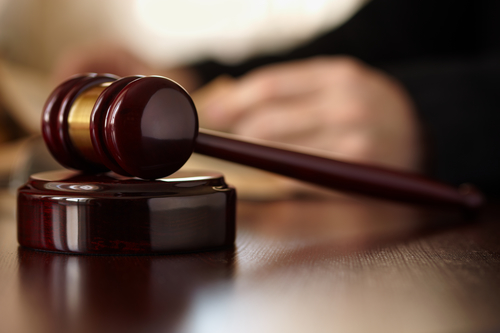 In my last post, I discussed how to pursue criminal enforcement in order to take counterfeit trademarks out of circulation and receive reimbursement. When you go this route, you put your case in the government’s hands.
In my last post, I discussed how to pursue criminal enforcement in order to take counterfeit trademarks out of circulation and receive reimbursement. When you go this route, you put your case in the government’s hands.
For this reason, many trademark owners prefer to pursue civil remedies. This gives them more control over how aggressively the case is pursued, who is included in the civil complaint as defendants, and when the counterfeit goods are seized.
Here is a brief summary of what happens during civil enforcement.
The trademark owner conducts a private investigation.
The focus of an investigation is to identify the counterfeiters and document the sales of the goods bearing the false mark. Often, this involves purchasing the counterfeit goods through as many sources as possible and keeping records of the purchase, including photos, receipts, and samples of the goods.
The trademark owner files a civil complaint.
The complaint is usually filed in the federal court where the counterfeit goods are located. In addition, the trademark owner usually petitions the court to issue an ex parte seizure order (15 USC § 1116(d)(1)(A)). For the court to grant this request, the trademark owner must prove:
- The seizure order is the only adequate remedy;
- The owner is likely to succeed based on the merits of their case;
- The owner will suffer immediate and irreparable injury without the seizure;
- The owner knows where the counterfeit goods are located; and
- The alleged counterfeiter will destroy, move, or hide the goods if given advance notice.
The petition should include affidavits documenting the purchase of the counterfeit goods, receipts and samples of the counterfeit goods. This request should be accompanied by a request for a temporary restraining order, preliminary injunction, asset freeze, and/or expedited discovery.
The trademark owner chooses between a jury or a judge.
The owner can request that the case be heard by a jury or a judge. Juries tend to be sympathetic to counterfeiting victims and often award higher actual damages. However, in cases where the facts of the counterfeiting case or calculation of damages are complicated, a judge may be the wiser option.
The trademark owner is awarded damages.
If the defendant is found liable for an intentional act of counterfeiting, then the owner can be awarded actual damages or profits, injunctive relief, and attorneys’ fees. As long as there are no extenuating circumstances, courts must enter judgment for three times the base profits or damages awarded whichever is greater.
If the actual sales or profits are difficult to prove, then the owner may choose to receive statutory damages, which can range from $1,000 to $200,000 per counterfeit mark per type of goods. If the infringement was willful, then the owner can receive statutory damages up to $2 million. Ultimately, the statutory damages are determined by the judge hearing the case based on the entirety of the circumstances in the case.
Proactive Approaches
You can also take a proactive approach to:
- prevent the creation of counterfeit goods, by developing counterfeit-resistant packaging and using product tracing and tracking technology; plus
- fight counterfeit sales happening on the internet by aggressively monitoring the use of your trademarks and using procedures established under the Digital Millennium Copyright Act to get Internet Service Providers (ISP) to remove websites selling counterfeit goods and identify via subpoena the counterfeiter from the ISP business records.
As a trademark owner, you should understand the importance of monitoring the use of your trademarks and aggressively protecting your marks from people who infringe on your trademarks and/or sell counterfeit products. If you need assistance with monitoring and protecting your trademarks, you should seek help from an experienced intellectual property lawyer. You can reach the Marks Gray IP team at 904-807-2180.